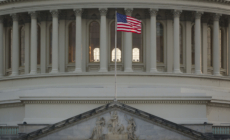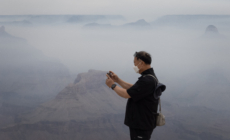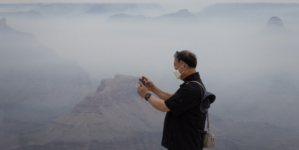-
New York Is Planning a Train Line to Connect Its Transit Deserts. We Walked All 14 Miles of It. - 25 mins ago
-
Lewis Hamilton Questions FIA Decision After Shock Q1 Knockout at Spa - 30 mins ago
-
DOGE AI Tool to Target 100K Federal Rules for Elimination: Report - about 1 hour ago
-
What to Know About the Hack at Tea, an App Where Women Share Red Flags About Men - about 1 hour ago
-
Alert Issued To Millions To Monitor Chest Discomfort - 2 hours ago
-
This Democrat Wants Cognitive Standards in Congress. Her Colleagues Disagree. - 2 hours ago
-
Dolphins Top Corner Injured as Secondary Woes Continue - 2 hours ago
-
A Kennedy Toils in Mississippi, Tracing His Grandfather’s Path - 3 hours ago
-
McLaren Plans Multiple Strategies to Take on Red Bull in Belgian GP - 3 hours ago
-
L.A. County bought the Gas Company Tower for $200 million. The upgrades will cost more - 3 hours ago
Photos Show Bloody Frogs, Raw Sea Cucumbers Discovered in US Airport
A K-9 police dog and federal officials uncovered an “unusual haul” at the Seattle-Tacoma International Airport which included bloody frogs and raw sea cucumbers, , Customs and Border Patrol (CBP) said on Friday.
Newsweek reached out to CBP via email for additional comment.
Why It Matters
CBP is responsible for safeguarding the nation from potentially hazardous materials and protected wildlife being brought into the country. Discoveries like bloody frogs and raw sea cucumbers raise concerns about possible disease transmission, invasive species and violations of international trade and wildlife protection laws.
These cases also highlight the importance of border inspections for both public health and environmental security. According to CBP, prohibited biological materials can threaten U.S. agriculture and ecosystem health if not properly controlled.
What To Know
In a post on X, CBP said that K-9 Buckie and CBP agriculture specialists discovered the items from a passenger arriving at the airport from South Korea. Along with the frogs and cucumbers, there were Other “unidentified items” discovered along with the frogs and cucumbers as well, CBP said.
The items are now with the U.S. Fish and Wildlife Service (USFWS) for identification, the post says. The specific date and time of the seizure was not disclosed in the post.
Transporting wildlife and raw animal products into the United States is tightly regulated. Many such items require special permits and must meet strict health and safety standards. The CBP and USFWS routinely cooperate to intercept potentially illegal imports and enforce laws protecting both consumers and native species.

What People Are Saying
CBP said on its website, in part: “The products CBP prevent from entering the United States are those that would injure community health, public safety, American workers, children, or domestic plant and animal life, or those that would defeat our national interests. Sometimes the products that cause injury, or have the potential to do so, may seem fairly innocent. But, as you will see from the material that follows, appearances can be deceiving.”
The agency continued: “Before you leave for your trip abroad, you might want to talk to CBP about the items you plan to bring back to be sure they’re not prohibited or restricted. Prohibited means the item is forbidden by law to enter the United States. Examples of prohibited items are dangerous toys, cars that don’t protect their occupants in a crash, bush meat, or illegal substances like absinthe and Rohypnol. Restricted means that special licenses or permits are required from a federal agency before the item is allowed to enter the United States. Examples of restricted items include firearms, certain fruits and vegetables, animal products, animal by products, and some animals.”
What Happens Next
The seized items remain in USFWS custody pending formal identification and review.
According to CBP guidelines, travelers importing biological materials or wildlife without proper declaration or permits may face civil penalties or criminal charges. It was not immediately known to Newsweek at the time of publication if the passenger was subject to any penalty.

Photo from CBP
Source link




















